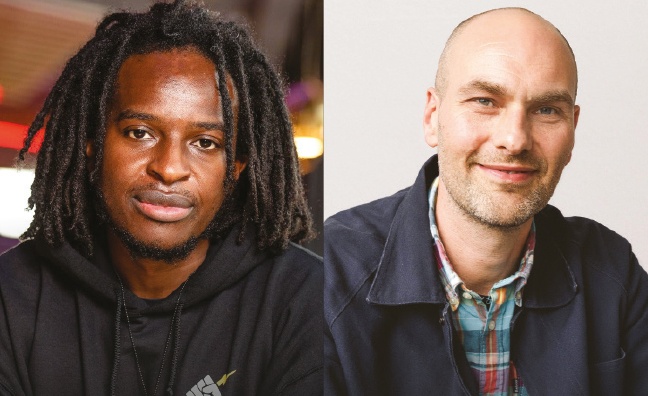Every issue, Music Week takes you inside the best music podcasts. This month, host Kayo Chingonyi and MD of Reduced Listening Joby Waldman reveal all about Decode, the podcast which offers insights into the inner workings of rap…
What was the initial inspiration behind Decode spinning out of the US Dissect podcast series?
Joby Waldman (MD, Reduced Listening): “We love Dissect’s commitment to in-depth rap analysis and wanted to build on that for a British audience by adding rich sound design with location recordings, audio archive, actor readings and original scores. It’s a treat for the ear, as much as for the mind. There aren’t many poetry academics with a track record in bus-stop freestyles, so we were lucky to find Kayo!”
For UK rap fans, what does Decode offer?
Kayo Chingonyi (host): “For each series, we invite researchers with different specialisms such as cultural history, musicology, archive and rap journalism to provide a close reading of the album in question, as well as working with several producers. Between us, there’s a lot of knowledge of the intricacies and artistry of rap, but also of the specific context of rap in the UK. We bring out those site-specific aspects which global listeners won’t pick up because those references are made for a UK audience.”
Why did you want to dive so deep on one album and break it down track by track?
JW: “Music, new and old, is more accessible than ever, but increasingly it’s there in the background, as music to work to, shop to, drink to and sleep to. We feel that to value music by listening really closely, and then listening again, is a radical act. We see Decode as the antidote to throwaway culture and faceless mood-based playlists.”
Your first series focused on Dave’s classic album Psychodrama. Why start with that?
KC: “Psychodrama’s such a complex body of work both lyrically and at the level of musicology. It also embodies themes around social justice, gender, race and the legacies of colonialism that inform contemporary UK culture.”
For the second series you looked at Skepta’s Konnichiwa. What did you add to the narrative of that record?
KC: “We describe Konnichiwa as a ‘road to Damascus’ album for Skepta. It was a re-calibration. In that way the album is emblematic of grime as a genre and of UK rap broadly-conceived. Listeners of my generation – I’m 35 – and the previous two generations remember UK rappers putting on American accents at a certain point because that was supposedly the ‘authentic’ voice in rap. In the late ’90s and early ’00s things shifted. UK rappers like Ty, Roots Manuva, Jehst and Klashnekoff were able to connect with global audiences while speaking in their own voices. Grime inherited that confidence and ran with it.”
You also do deep dives into the actual music and production – why was that so important to you?
JW: “UK rap contains as much information in the instrumental as the lyrics. Dave’s Psychodrama contains the DNA of so many influential Black British music genres: grime, UK garage and lovers rock. When our musicologist Shara Rambarran reviews the album she transcribes the notes and analyses the production. We love joining the dots between new and old genres.”









